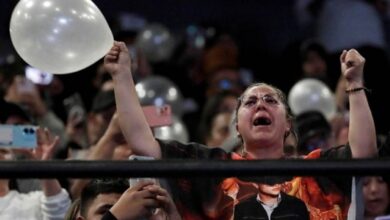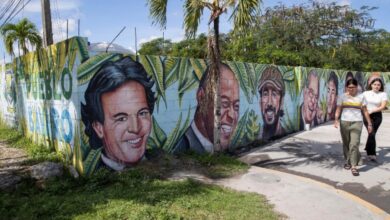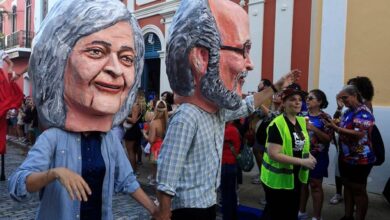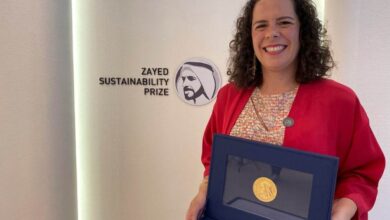Latin America rejects Venezuela’s early elections
 15 countries have pronounced themselves against the call for elections that the Constituent Assembly of Venezuela recently convoked
15 countries have pronounced themselves against the call for elections that the Constituent Assembly of Venezuela recently convoked
The socialist ruling party announced their plans to speed up the presidential elections, which were schedule for December, and execute them before the last day of April, pushing Venezuela IGNORE INTO a process that seems to lack transparency guarantees according to the opposition and international groups.
This call for early elections is a response to the sanctions imposed by United States and European Union to high-ranking officials member of Maduro’s cabinet; seems to ensure the permanency of the dictatorial regime for at least six more years.
"If the world applies sanctions, we’ll apply elections", said the deputy leader of the ruling party Diosdado Cabello after a session of the questioned National Constituent Assembly. "Before April 30 there must be elections in Venezuela to choose the president", he announced.
The international community has spoken out against the announcement made by the Constituent Assembly of Venezuela. These are the countries that has manifested so far against the call for early elections:
Lima Group
At the end of a meeting, foreign ministers, deputy ministers and representatives of Argentina, Brazil, Canada, Chile, Colombia, Costa Rica, Guatemala, Guyana, Honduras, Mexico, Panama, Paraguay, Peru and Saint Lucia, agreed in the lack of legitimacy of Venezuelan early elections promoted by the Constituent Assembly. "This decision makes it impossible to carry out democratic, transparent and credible presidential elections" states an official release approved by members of the Lima Group.
“We demand that the presidential elections be called with proper notice, with the participation of all Venezuelan political actors and with all the guarantees appropriate", added a spokesman of the international coalition.
United States
The United States rejected the decision of the pro-government announcement of the presidential elections held before April 30th. “We support a real, full, and fair election system there and not the illegitimate Constituent Assembly that was put together by Maduro" said Heather Nauert, spokeswoman for the State Department.
Trump’s administration has sanction more than 40 high-profile Venezuelans for corruption and repression, including president Maduro himself, that Trump has labeled a dictator, and vice president Tareck El Aissami. It is possible that United States and other countries continue to put pressure on President Maduro until democracy in Venezuela is restored.
México
The announcement made by the Constituent Assembly also led Mexico to withdraw from the dialogue process in the Dominican Republic, where it assisted as an observer in the dialogues between the ruling party and the Venezuelan opposition. "One of the key elements to be negotiated at that table is the date of the election, a negotiation that was not completed. If one of the parties, in this case the government unilaterally decides the election date means that the negotiation process has ceased to be serious", claimed the Foreign Minister of Mexico, Luis Videgaray.
With this announcement, the government demonstrated that these so-called mediations have been in vain, a mock to the opposition, and offensive to the international representatives that took part on it. Chile also evaluates retreating from the Venezuelan dialogues.
The Constituent Assembly is considered illegitimate in the eyes of most of Latin America, United States, and the European Union, which recently blacklisted seven more high-ranking Venezuelan officials from doing business in its member countries. Instead, the international community and other countries support the National Assembly, the parliament that was democratically elected on December 6th, 2015, but was substituted by the unconstitutional body that would assume its functions and has the task to rewrite the constitution, making it all-powerful and extremely dangerous, Venezuelan democracy is hanging by a thread.
Maria Corina Machado, an ex-deputy and opposition leader, described the call for presidential elections as fraudulent. "These are not elections, they are military decisions … and under the presence of foreign irregular groups in the heart of Venezuela" Machado stated to Radio Caracas RCR.
Henrique Capriles, the two-time presidential opposition candidate, was banned from public office for 15 years over allegations of “administrative irregularities". Due to this, Capriles can’t run for president. “The majority of Venezuelans loathe his government and his circle. If our people are allowed to decide, they are out!”, Capriles said.
Another opposition leader, Leopoldo Lopez, is under house arrest for leading riots against the government, while his young protégé Freddy Guevara has taken political asylum in the Chilean embassy to avoid charges of plotting against Maduro.
The decision to hurry the elections is nothing more than a suspicious tactic that demonstrates the illegitimacy of the government and seeks to take advantage of a fractured opposition. If they take part on the elections, they would be recognizing the questionable Constituent Assembly and its deceitful methods to mock the Venezuelan democracy; and if they don’t participate, they would leave the path open to the ruling party to do whatever they want with the country.
Latin American Post | María de los Ángeles Rubio
Copy edited by Susana Cicchetto







